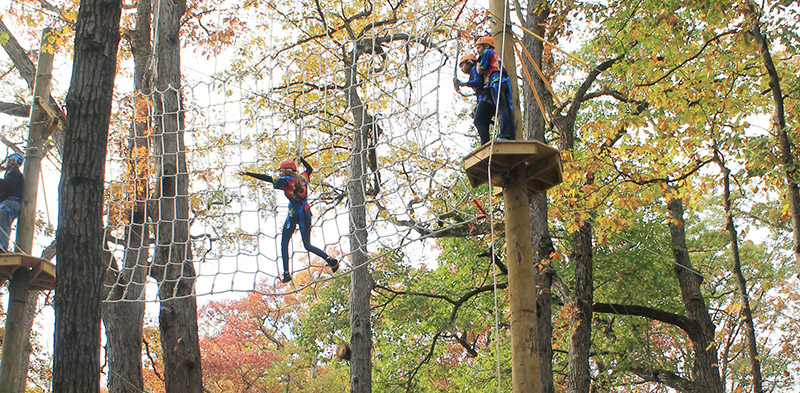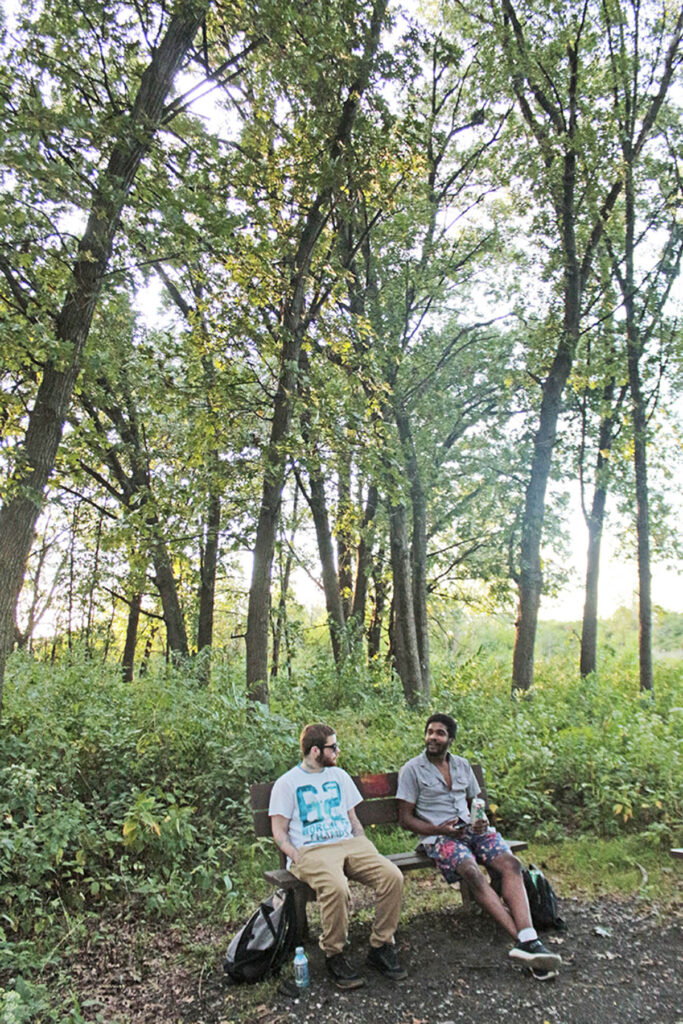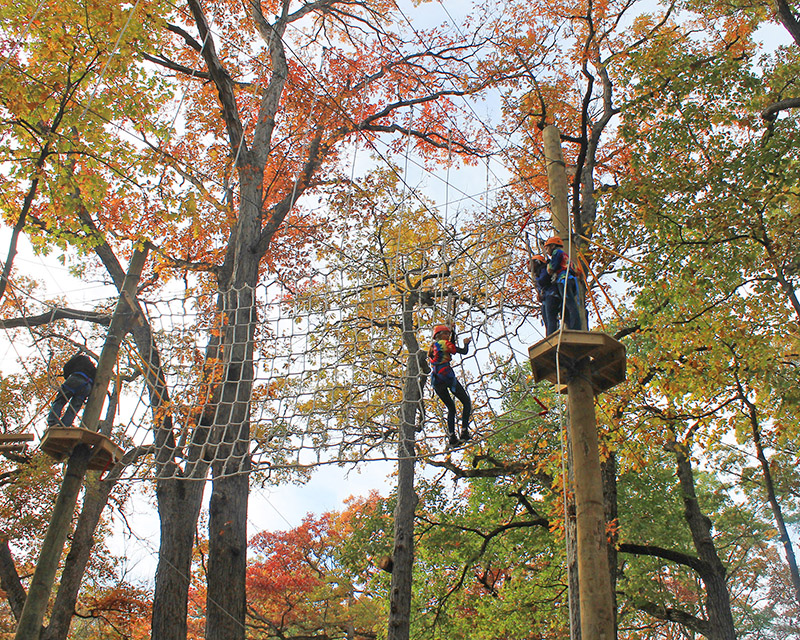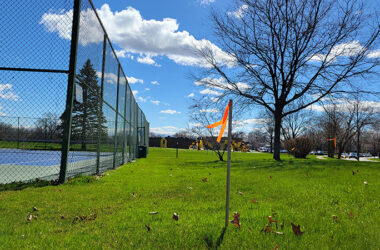
“I encourage you to open your eyes to observe how fortunate we are in our region to have these oaks we take for granted,” said Cheryl Vargo, manager of Irons Oaks Environmental Learning Center at the intersection of Western Avenue and Vollmer Road in Olympia Fields.
“If you take a regional view, oaks are actually rare. As you travel outside of the area, notice the landscape. If you take the interstate anywhere away from the area, farmland and open prairies pop up almost immediately.
“Two miles west of here is open farmland and one mile north you can see the occasional large tree in a yard. Two miles east, oak trees abound as land has been preserved by the Cook County Forest Preserve and to the south, more development and preservation,” she explained.

Crawford of Glenwood enjoy the tranquility
of the oak woodland recently at Izaak Walton nature
preserve in Homewood.
(Eric Crump/H-F Chronicle)
What Vargo just described is a remnant oak tract. Experts say some of the oldest trees are 200 years old. That’s a lot of history. Illinois became a state in 1818. Homewood was established in 1893, and Flossmoor in 1924.
The oaks at Irons Oaks extend through the region’s golf courses making a line into Homewood and the Izaak Walton Preserve, then east into the Glenwood/Thornton area of the Cook County Forest Preserve.
Vargo believes the oak stands were saved because the land they sat on wasn’t good for construction. Other trees were chopped down in adjacent areas to make way for subdivisions.
“We just had the perfect habitat where it was wet, where trees like to grow,” she said, “and we managed to keep these oaks.”
Chip O’Leary of Homewood is deputy director of resource management at the Cook County Forest Preserves. He estimates there are about 2,000 acres of oaks in the Glenwood-Thornton-Lansing area.
Glenwood Woods follows Main Street in Glenwood. North of Main Street is Sweet Woods and Brownell Woods. Between them, there is about 1,100 acres of oaks.
Jurgensen Woods is in Thornton and north another stand of trees is on the east side of I-394 along Thornton-Lansing Road. The woods are about 450 acres each.
This area was a moraine, and the glaciers left that sandy soil. O’Leary said the preserves are dominated by black oak, white oak and pin oak.
“Black oak likes the driest soil, white is in between and pin oak likes it wet,” he explained.
Irons Oaks has primarily swamp white oak around its pond, white oak, bur oak, red oak, chinkapin and willow oaks.
Both the Cook County Forest Preserves and Irons Oaks do controlled burns to clear out brush.
Bryon Doerr, landscaping and maintenance supervisor in the Village of Homewood, said he will be keeping an eye on oaks because Sudden Oak Death has been reported in southern Illinois. Oaks are being planted in residential neighborhoods, but they won’t grow to be 100 years old. They suffer too much from poor soil and various toxicities from road salt and other hazardous materials, Doerr said.
A walk in the woods is a great way to spend your time, Vargo said. Irons Oaks, as an environmental learning center, sponsors various programs, but the public is encouraged to walk the paths. O’Leary said bikers and hikers can enjoy designated trails through the forest preserves’ oaks areas.




